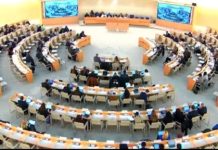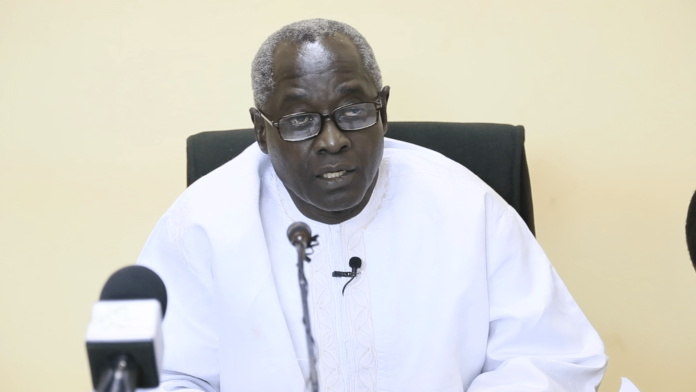By Yankuba Jallow
Halifa Sallah, the member for Serrekunda said the Local Government Act contains provisions meant to consolidate the might of the Executive.
He said on the 20th July 2015, there were amendments of laws including the Elections Act and the Local Government Act geared towards giving the Executive multi-powers.
“They brought this about so that the Executive will be able to dismiss; it is not meant to contain people in the parties so that people would not cross-carpet but to dismiss people. That is the reality,” Sallah said.
He added that this is when people were required to deposit one million dalasi for registration of a political party with ten thousand registered voters.
“It was a pull ground of consolidating the might of the Executive,” Sallah said.
Sallah said he once challenged the Independent Electoral Commission (IEC) when it wanted to conduct an election in a particular ward when the councillor was expelled by his party. He added after writing to the electoral commission, they reneged from their position after realising that lacuna and they decided to amend the law.
He reminded his colleague lawmakers that when they came newly, they amended a law which provides for a lawmaker to lose his or her seat upon expulsion of their party. He said under previous law, lawmakers were protecting their seats and that was why they were in agreement with whatever the executive decided. Sallah said people became slaves under the might of the leaders.
“That is why you – this new parliament decided to put that to an end and you liberate yourself and you did that. That is why you are free to speak as you are speaking,” Sallah told his colleagues.
He indicated that the law was changed because they were a united parliament.
“If we remained divided as we are now, we would not have changed that law. We would have still been slaves. We started united and we are now divided. Divided we shall fall and we will continue to go down, down (and) down,” Sallah said.
Sallah said even though the amendment bill of the Local Government Act was coined in such a way it reflects the current atmosphere of feud between people, but the reality is that it should be put aside.
“Let us look at the essence of what we are doing. What we are doing is clearly spelt out to us,” the legislator said.
Sallah pointed out that section 60 of the Constitution provides that “No association shall be registered or remain registered as a political party if its internal organisation does not conform with democratic principles.” Sallah said every political party must conform to democratic principles.
The Serrekunda born said section 112 of the Constitution provides for the responsibilities of the members of the National Assembly which includes discharging their duties and functions in the interest of the nation as a whole and in doing so, they shall be influenced by the dictates of conscience and the national interest.
“There should be a separation of party and State because we are running machinery that is not partisan machinery, but national machinery,” Sallah emphasized.
He said party should not have influence in the running of the State.
“If you are there you should not serve party interest. You are there to serve the national interest and that is what the democratic principle entails,” Sallah said.
The Secretary General of PDOIS said the provision of the law that requires a councillor or mayor to lose his/her seat if he is expelled by his party, is an abuse because section 22 of the Local Government Act states ‘ For the purpose of revoking the mandate of the Chairperson or an elected member of a Council, at least fifty per cent of the registered voters in the electoral area shall petition the Independent Electoral Commission for the revocation’.
He added that the law provides that on receipt of the petition referred to in subsection (2), the Independent Electoral Commission shall organise a referendum to decide the issue whether or not such Chairperson or member shall be recalled. He explained that the issue at the referendum shall be decided if at least fifty per cent of the registered voters in the electoral area vote on the issue; and sixty per cent of the votes cast are in favour of the recall of the Chairperson or member.





















